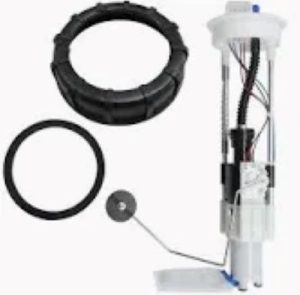Fuel pump efficiency does indeed contribute to higher fields of vehicle performance, fuel economy, and even to the life cycle of a motor. Efficient fuel pumps have been designed to supply fuel under constant pressure to the engine according to the respective specification of the different engines. During high efficiency of the fuel pump, the pumping at this pressure enables the engine to reach an optimum balance in the air-fuel mixture for smooth combustion along with achieving maximum power output. Conversely, a faulty pump may lower the fuel pressure, creating a lean mixture that hinders acceleration and could even cause engine misfires, especially when under higher demands like rapid acceleration or uphill climbing.
The performance of the fuel pump directly relates to fuel efficiency. When a pump starts to fail, it can cause variably rich air-fuel mixtures because fuel flow becomes non-linear, leading to incomplete combustion. Such inefficiency may drop MPG as much as 10%, thereby increasing the overall fuel costs on the part of the driver. In this regard, frequent maintenance through fuel pressure checks and filter replacements once every 20,000 to 30,000 miles assures that the fuel pump operates with good efficiency to maintain stable MPG with a minimum waste.

A fuel pump's lifetime also contributes to the maintenance costs and reliability of the vehicle. While most pumps will last from 100,000 to 150,000 miles, efficiency degrades with wear and tear. The older the pump is, the energy it needs to sustain pressure increases, thus putting more pressure on the battery and alternator. This can cut the life expectancy of those parts up to 15%, at extra replacement cost and time. Replacing the old Fuel Pump at the right time can prevent these downstream effects and maintain efficiency throughout the system.
Poor fuel pump efficiency will also increase emissions because erratic fuel delivery often results in incomplete burning of fuel. In regions with emission controls, vehicles with inefficient pumps are more apt to fail inspections, raising the likelihood of expensive repairs. Efficient pumps facilitate cleaner combustion, reducing hydrocarbon-type emissions and supporting environmental compliance.
In high-performance applications, efficiency from the fuel pump becomes even more critical since engines require a much higher flow rate, often exceeding 300 liters per hour. A low-efficiency pump in a performance engine can starve the engine of fuel, leading to irreparable engine component damage, including but not limited to pistons and valves. In such cases, replacing it with a high-performance fuel pump-one that was designed and fitted for the specific needs of the engine-will provide reliable service, realizing most of the potential of that particular engine package.
All in all, good Fuel Pump ensure a smooth performance of the engine, better fuel economy, less emission, and reduced maintenance costs-really a very fundamental component that ensures reliability in vehicle performance for a longer period.
